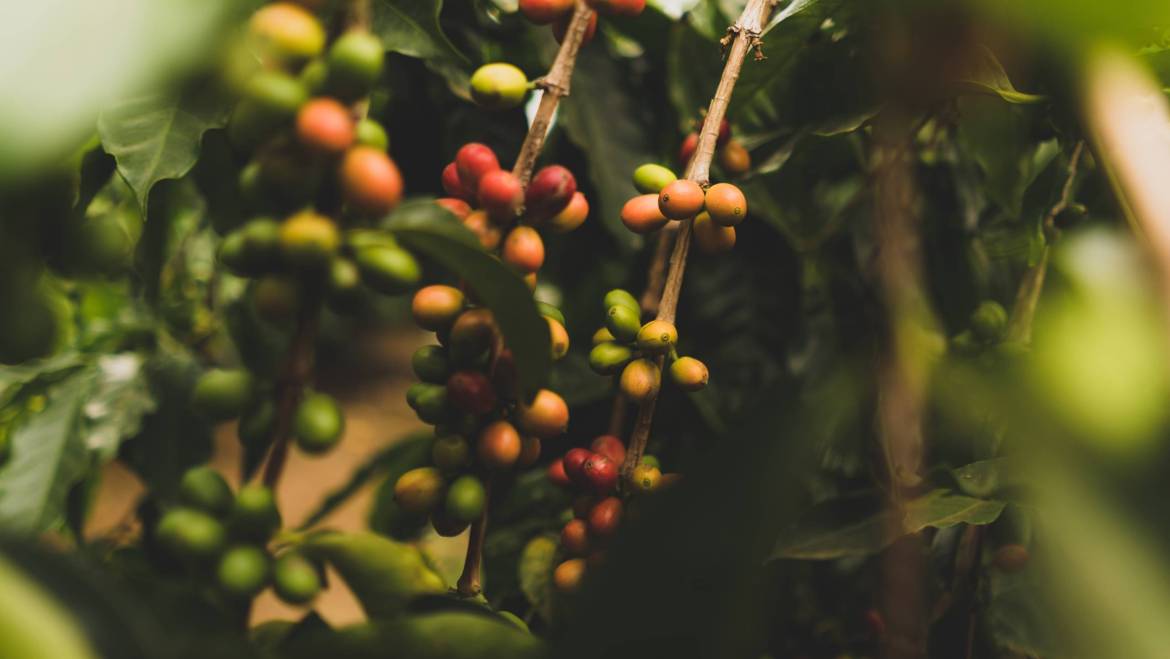Introduction: The Conscious Coffee Movement
In recent years, the conscious coffee movement has gained momentum, as more and more individuals seek to enjoy their daily caffeine fix while minimizing their environmental impact. This article will explore a variety of eco-friendly choices and practices that can help you become a more sustainable and responsible coffee consumer.
Choosing Sustainable Coffee Beans
Fair Trade and Organic Certified Beans
To ensure the sustainability of your coffee consumption, it's essential to choose Fair Trade and Organic certified beans. These certifications guarantee that farmers receive a fair price for their crops, while also promoting environmentally friendly agricultural practices, such as avoiding harmful pesticides and synthetic fertilizers.
Shade-Grown Coffee
Another eco-conscious option is shade-grown coffee, which is cultivated under the canopy of diverse trees, rather than in large, clear-cut monoculture plantations. This method not only preserves natural habitats for various plant and animal species but also helps to reduce soil erosion and maintain water quality.
Direct Trade and Local Roasters
Consider supporting Direct Trade and local roasters to further reduce the environmental impact of your coffee consumption. Direct Trade connects coffee farmers and roasters directly, resulting in a more transparent and sustainable supply chain. Buying from local roasters also reduces transportation emissions and supports your local economy.
Brewing Your Coffee Sustainably
Energy-Efficient Brewing Methods
Choosing energy-efficient brewing methods can significantly reduce the environmental impact of your daily coffee ritual. Consider using a manual brewing method, such as a French press, pour-over, or Aeropress, which typically require less energy compared to electric coffee makers.
Reusable Filters and Coffee Pods
Using reusable filters and coffee pods can minimize waste and reduce the environmental impact of single-use, disposable products. Invest in a reusable metal or cloth filter for your drip coffee maker, or opt for reusable coffee pods compatible with your single-serve machine.
Proper Coffee-to-Water Ratio
To avoid wasting coffee, it's important to use the proper coffee-to-water ratio when brewing. Typically, a ratio of 1:15 to 1:18 (coffee to water) is recommended. Experiment to find your preferred taste and ensure you're not using more coffee than necessary.
Eco-Friendly Coffee Accessories
Insulated Reusable Cups
Invest in an insulated reusable cup to reduce waste from disposable cups and lids. Not only do reusable cups help to conserve resources and minimize waste, but they also keep your coffee hot for an extended period, ensuring you can savor every sip.
Sustainable Coffee Storage
Opt for sustainable coffee storage solutions, such as airtight glass or stainless-steel containers, to preserve the freshness of your beans while reducing your reliance on single-use plastic bags and packaging.
Compostable Coffee Accessories
Consider choosing compostable coffee accessories, such as unbleached paper filters or wooden stirrers, to minimize waste and contribute to a healthier environment.
Recycling and Composting Coffee Waste
Composting Coffee Grounds
Don't let your used coffee grounds go to waste – instead, compost them to create nutrient-rich fertilizer for your garden. Coffee grounds are an excellent source of nitrogen and can help to improve soil structure and fertility.
Recycling Coffee Packaging
Ensure that you're properly recycling coffee packaging, such as bags, pods, and capsules, to minimize waste and reduce the strain on landfills. Check your local recycling guidelines and participate in recycling programs offered by coffee brands and retailers.
Reusing Coffee Grounds
There are numerous ways to reuse coffee grounds around your home. Use them as a natural deodorizer, a gentle abrasive for cleaning, or even incorporate them into DIY skincare products like scrubs and masks.
Supporting Sustainable Coffee Initiatives
Engaging with Coffee Communities
Get involved in coffee communities to stay informed about sustainability initiatives, share eco-friendly practices, and advocate for environmentally responsible coffee production and consumption.
Supporting Sustainable Coffee Non-Profits
Consider supporting sustainable coffee non-profits that work to protect the environment, empower coffee farmers, and promote sustainable farming practices. Organizations like the Rainforest Alliance, Coffee Kids, and World Coffee Research are making a positive impact in the coffee industry.
Educating Others about Sustainable Coffee
Share your knowledge and passion for sustainable coffee with friends, family, and colleagues. Educate others about the importance of eco-friendly choices and practices, and encourage them to join you in making a positive impact on the environment and the lives of coffee farmers worldwide.
Conclusion: Your Impact as a Conscious Coffee Drinker
As a conscious coffee drinker, you have the power to make a significant difference in the environmental impact of your daily caffeine fix. By choosing sustainable coffee beans, brewing your coffee responsibly, using eco-friendly accessories, recycling and composting waste, and supporting sustainable initiatives, you are contributing to a healthier planet and a more ethical coffee industry.
Remember, every sustainable sip counts. Together, we can transform the coffee industry and protect our planet for generations to come.
Related Source:
- Fair Trade USA. (n.d.). What is Fair Trade? Retrieved from https://www.fairtradecertified.org/why-fair-trade
- Organic Materials Review Institute. (n.d.). Organic Certification. Retrieved from https://www.omri.org/organic-certification
- Specialty Coffee Association. (n.d.). Shade-Grown Coffee. Retrieved from https://sca.coffee/research/shade-grown-coffee
- Direct Trade Coffee Club. (n.d.). What is Direct Trade? Retrieved from https://www.directtradecoffeeclub.com/what-is-direct-trade
- Coffee Science. (2019). How to Choose the Best Brewing Method. Retrieved from https://www.coffeescience.org/best-brewing-method
- Reusable Coffee Pods Guide. (n.d.). Reusable Coffee Pods: An Eco-Friendly Alternative. Retrieved from https://www.reusablecoffeepodsguide.com
- National Coffee Association. (n.d.). Coffee-to-Water Ratio. Retrieved from https://www.ncausa.org/About-Coffee/How-to-Brew-Coffee
- Rainforest Alliance. (n.d.). Our Work in Coffee. Retrieved from https://www.rainforest-alliance.org/work/agriculture/coffee
- Coffee Kids. (n.d.). Empowering the Next Generation of Coffee Farmers. Retrieved from https://www.coffeekids.org
- World Coffee Research. (n.d.). Advancing Coffee Research Worldwide. Retrieved from https://worldcoffeeresearch.org




Add Comment